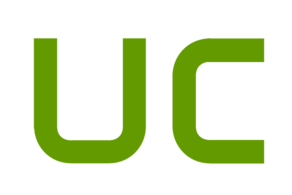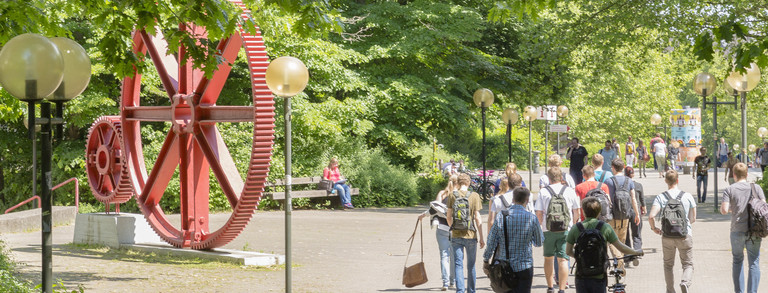Research
Research is an essential part of the professorship of Management Accounting and Control. The focus is on the following areas:
- International Control
- Accounting of Charge-Regulated Companies (energy and water)
- Control of Non-Profit Organizations and Public Pricing Law
- Risk Management
- Control of Industry 4.0
- Calculation and Cost Management
In these areas, the professorship is permanently working on projects that contribute to research and create value for project partners.
Results of the research are presented at national and international conferences. The discourse with other scientists validates the generated results and revises them if necessary. The professorship is also (co-)organizer of two conferences: The "Anwendertreffen Preisrecht" and the "Mülheimer Tagung". These conferences connect research and business practice.
In publications, the research results are made available to the public.
Main research topics
The research areas include international control, the accounting of pay-regulated companies with the industry focus on energy and water, control of non-profit organizations, risk management, control of industry 4.0 as well as calculation and cost management. All subject areas are connected by the ambition to conduct empirical research at an internationally high level.
Research on international control focuses on the development of solutions for disruptive factors of control in an international context, e.g. for the treatment of exchange rate fluctuations in the planning and control process, for the consideration of cultural influences on international control or for the inflation adjustment of results in hyperinflationary countries. These questions are incorporated into the textbook “Internationales Control”. Special attention is given to international comparative control. The observed control practices, which differ significantly from country to country, are the starting point for further research. In previous studies, primarily German control was compared to the understanding in France, Spain, Latin America, China and the Arabic world.
A special industry focus is set on control issues of the supply and disposal industry. In this context, the energy industry as well as the water/wastewater companies are of particular importance. In the field of energy management, the professorship cooperates closely with pay-regulated companies on various questions of corporate management. The main focus is on the effects of incentive regulation on energy suppliers and entrepreneurial response strategies. Against this background, the expert report "Korrekturbedarf bei der Ermittlung von risikolosem Basiszinssatz und Marktrisikoprämie" (only available in German) was written in 2015 together with Prof. Dr. Peter Posch on behalf of BDEW.
In the field of water management, Prof. Dr. Andreas Hoffjan is Scientific Director of a leading German water institute, the IWW - Zentrum Wasser in Mülheim, since 2010. The IWW is a member institute of the Johannes Rau Research Association. The water management research focuses on both, drinking water supply and wastewater disposal. The last mentioned are mainly concerned with the interface between control and regulation, including corporate management and efficiency measurement of wastewater disposal.
The research focus on control in public administrations, which was established with the dissertation of Prof. Dr. Andreas Hoffjan, supports the existing reform process of the public sector and non-profit organizations. Currently, success factors of public-private partnerships and control approaches in foundations are being investigated. These topics are also often discussed from an international comparative perspective, e.g. risk management, in which German and British non-profit organizations were compared.
A special interest lies on pricing in public procurement and public donation. The foundation for this focus lies in the legal commentary for the public price law Ebisch/Gottschalk " Preise und Preisprüfungen bei öffentlichen Aufträgen (Prices and Price Auditing for Public Contracts)", that is published by Prof. Hoffjan in cooperation with the lawyer Hans-Peter Müller. In 2015, Prof. Hoffjan and Prof. Dr. Dörr draw up the assessment for the German Federal Ministry of Economics " Die Bedeutung der Verordnung PR Nr. 30/53 über die Preise bei öffentlichen Aufträgen (The importance of the regulation PR No. 30/53 on prices in public procurement)". Current research in this area focuses on cost allocation as well as on the auditing of cost-based prices in public procurement and donation, as well as special issues in IT costing.
Starting with the habilitation thesis "Risikorechnung für industrielle Auftragsfertiger", the professorship deals with questions of risk management from a management accounting perspective. The research addresses different risk categories, e.g. in the supply chain and environmental risks. Of particular interest are approaches to increase the quality of risk management. Therefore, the contribution of risk management to business success is investigated. In this context, the Supervisory Board also plays an important role, as it has to monitor the effectiveness of the risk management system. The practical relevance of the research regarding risk management is ensured by the close connection of Prof. Dr. Hoffjan with the risk management community, especially in his function as scientific director for risk management courses of the seminar provider Management Circle.
The professorship is part of the Research Training Group "Adaption Intelligence of Factories in a Dynamic and Complex Environment". There, doctoral students from different disciplines work on their doctoral thesis in the field of adaptation planning of factory systems. A special focus of the professorship's research is the analysis of the effects of Industry 4.0 on corporate management. Controllers face numerous challenges due to the volume of data, the heterogeneity of the data and the speed at which it is provided. These concern the improvement of data quality, but also the assurance of data sovereignty with the "single point of truth". These issues are being addressed in close cooperation with scientists from computer science and mechanical engineering.
With a research focus on calculation and cost management, the professorship engages in a field of research with strong practical relevance. Driven by intensifying competition and dynamic markets, companies strongly focus on establishing and maintaining a competitive cost situation. This entails initiating and managing complex mechanisms with an influence on various decisions regarding programs, potentials and processes within the organization. Transformative forces such as the digitalization or structural change in certain industries further increase the level of complexity and possibly change the setting in a fundamental way. Current research activities focus on the impact of such transformational processes on cost management and cost calculation.


